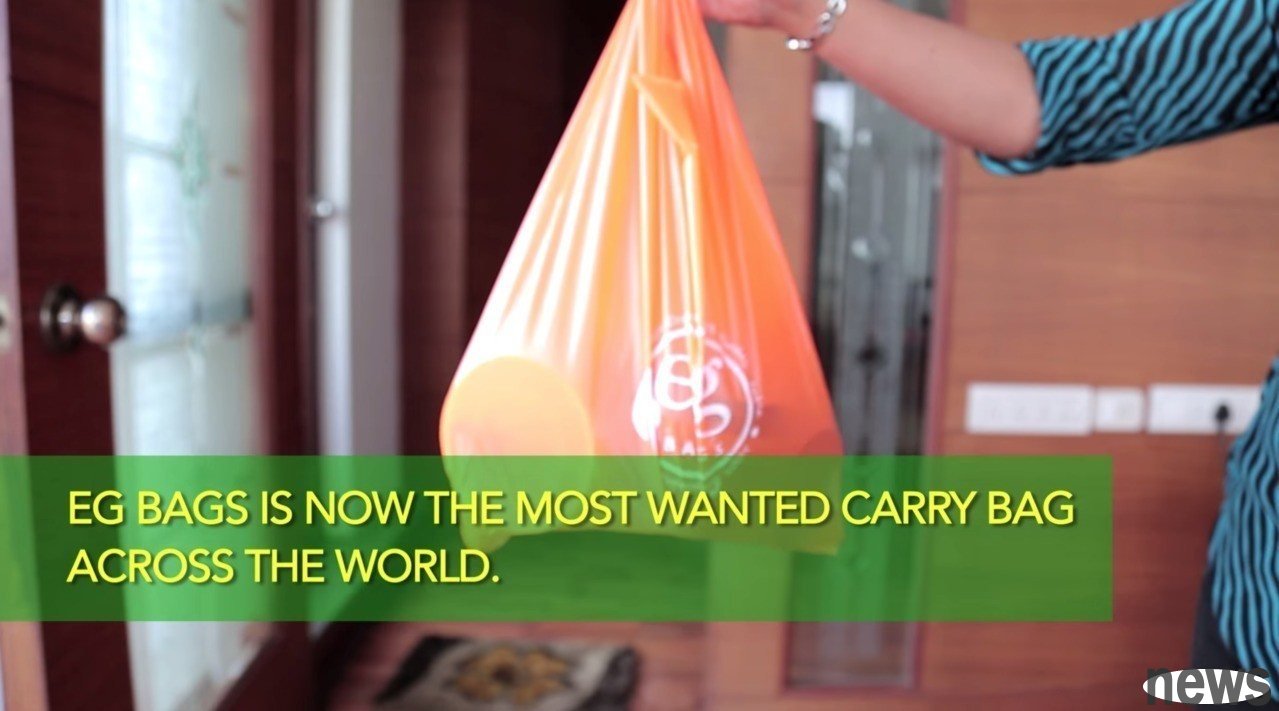The food you should know is that plastic bags have become the world's public enemy. Many countries have ordered bans, but it also causes small businesses that need to pay for plastic bags to sell goods to be unable to pay for the high cost of re...
 The food you should know is that plastic bags have become the world's public enemy. Many countries have ordered bans, but it also causes small businesses that need to pay for plastic bags to sell goods to be unable to pay for the high cost of reusing bags. There is a group of people in the world who are committed to developing cheap and environmentally friendly packaging materials to get more support from the plastic ban policy.
The food you should know is that plastic bags have become the world's public enemy. Many countries have ordered bans, but it also causes small businesses that need to pay for plastic bags to sell goods to be unable to pay for the high cost of reusing bags. There is a group of people in the world who are committed to developing cheap and environmentally friendly packaging materials to get more support from the plastic ban policy. More than 60 countries in the world have announced the ban on plastic bags, especially in Africa, Southeast Asia and other countries. For example, Kenya has formulated the world's most stringent plastic bag ban, and the offender can be punished by NT$1.1 million or sentenced to four years in prison. Although the results are significant, there are also merchants in Kenya who complain because reusable bags cost 6 times more than plastic bags. However, if small businesses do not absorb the costs themselves, they will lose customers. In Kenya’s case, the ban has brought about a reduction effect, but it also creates a biomarker threat in the lives of the people. Therefore, inventors around the world are working to find packaging materials that do not harm the environment and produce energy.
{9 Green launched a 100% biodegradable bag in 2012, which is made of natural powders such as potato, cassava, corn, and 12 ingredients such as vegetable oil, banana and flower oil. The appearance is the same as that of ordinary plastic bags. It can replace disposable plastic bags and is soluble in hot water at 80 degrees, or directly burning will not cause air pollution. Although the cost of an EnviGreen bag is about 35% higher than plastic bags, it is 500% lower than cotton bags, and can produce 1,000 tons of bags per month, which has achieved the possibility of mass production. Indonesia AVANI Eco has a wide range of research and development. From plastic bags, plastic tableware straws to raincoats, they all want to replaceThere is a video on the Internet. A person tear off a corner of a bag that looks like a plastic bag, put it in warm water and stir it and drink it. This is not a direct sales method for salesmen, but AVANI Eco, a company founded in Jakarta, Indonesia in 2014. They are also committed to developing completely decomposed and compostable disposable plastic substitutes. Their first product is "BIO-CASSAVA BAG” is mainly made of cassava powder. This bag can also be dissolved in hot water at 80 degrees, or can be recycled with paper. In addition, AVANI Eco's products also include raincoats made of corn, soybeans and sunflower seeds; PLA (polylactic acid) series products, with knife and forks and spoons that can withstand heat of 85 degrees, cups and straws that can hold cold food; FSC certified corn flour as the inner paper bowl, which can withstand heat of 80 degrees; and bagasse is used to make oil, microwave and cold-resistant lunch boxes.

Although the United States has not yet formulated a national plastic reduction policy, the problem of plastic reduction has been discussed and found alternatives in the university's experimental room. The American Syvania State University led a team of Professor Jeff Catchmark to develop a biological material composed of fiber and bismuth. The fiber comes from wood or cotton, and the fiber comes from shells such as dragons, crabs and brass, and the price is not expensive. This biomaterial can resist oil and water, and is resistant to toluene, heptane and other solutions, and has a wide range of applications, such as waterproof paper, ceiling, wall mattress, food mattress or sealed packaging, etc., and can be completely decomposed by compost, which can replace the plastic packaging that is now widely used.
Professor Jeff Catchmark from the United States has developed cheap and environmentally friendly biomaterials that are expected to replace plastic packaging. (Picture source = Binthiania State University) In addition to researching in the experiment room, the American Saltwater Brewery Company also realized the environmental protection of beer packaging and invented the "Eco Six Pack Rings" (simplified E6PR) first-hand beer environmentally friendly packaging. Unlike the plastic ring covers that are generally packaged in beer, E6PR is made of beer-made slags, the sub-product of beer, large maize and small maize. It is not only completely decomposed, but even if animals are eaten, it will not cause harm, showing the spirit of making full use of beer raw materials.
{twenty three} {twenty four}
From the example, we can see that no matter how economic development a country is, it will not affect the people in it to study alternatives to environmental protection. Although the focus is different, Southeast Asian countries are focusing on plastic bags that are explicitly prohibited, while the US laboratory is committed to developing materials that can be used more widely. The beer company has made beer sub-products into a lifting ring, but they all set up their own layers to reduce plastics. The plastic ban policy has good intentions, but it also requires support from the public. If you brainstorm, you will definitely find a suitable method for the public faster. (Note: This topic is written by practical editors and reviewed by the Food and Power Editorial Team.)